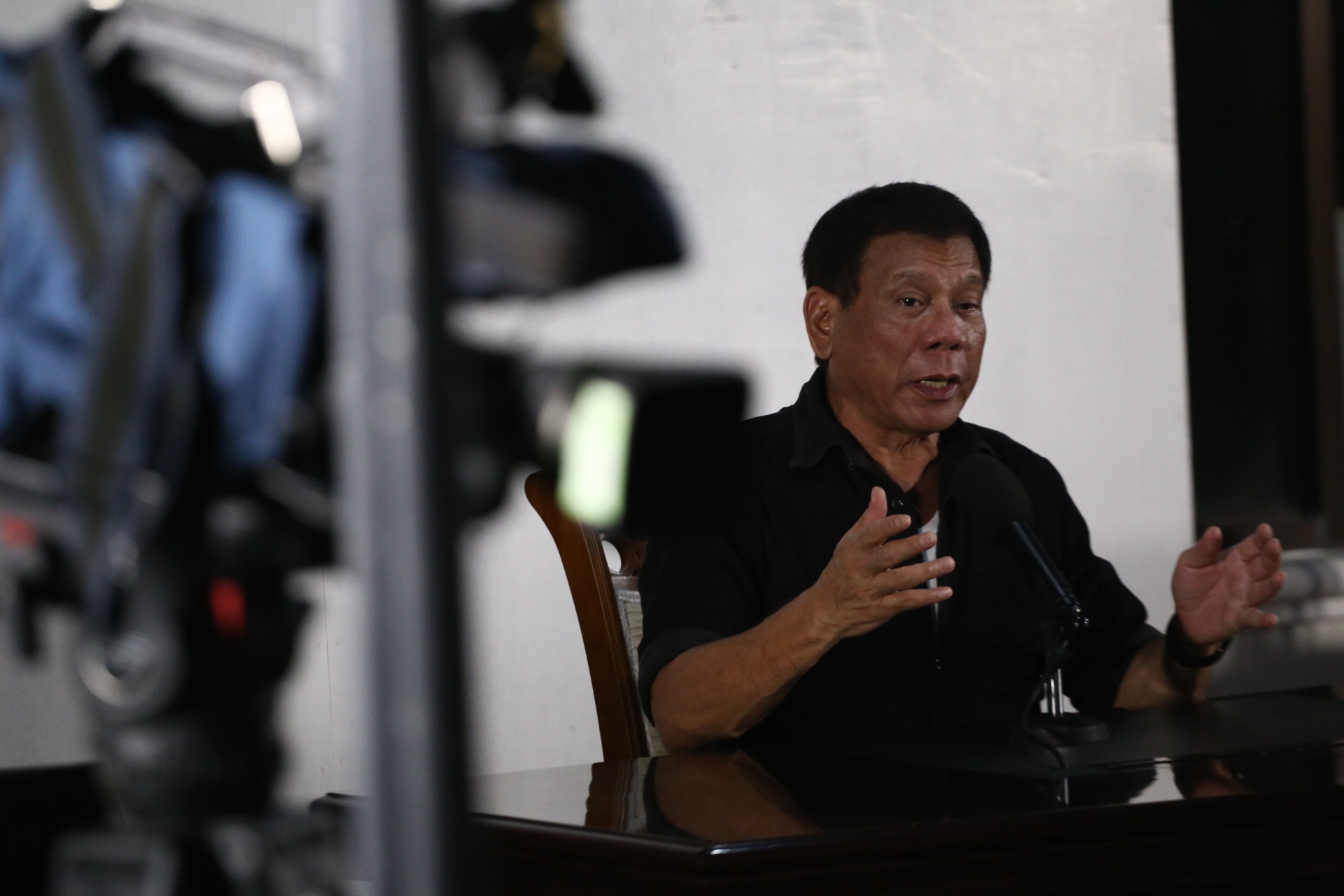
DAVAO CITY, Philippines – President-elect Rodrigo Duterte was dismissive about what his administration would do about media killings in the Philippines saying that “most” slain journalists are corrupt.
While acknowledging that honest journalists sometimes get killed too, he maintained that all journalists know or should know what they are getting into.
“What can I do? You are there, there is always a risk. Even the good ones who died along the way, they exposed something that maybe benefited our country, I would like to admit that,” he told a roomful of journalists on Thursday night, June 2, in Davao City.
He began the press conference by listing down “3 kinds of journalists."
The first, he said, are the crusaders “bearing it all to the public and sometimes they hit big business.” The second are the “mouth pieces” who protect powerful people with “press release” type of articles. The third are “low-life” journalists who dig up dirt and demand money from the subject of their stories in exchange for keeping their mouths shut.
It is with the last type of journalist that Duterte is disgusted with.
“Pero kayong mga low lives, you can die for all I care. Hinihingi 'nyo, pumapasok kayo sa illegal (You low lives, you can die for all I care. You’re asking for it, getting into illegal activities)," he said.
“The vultures of journalism, ‘yan ang maraming namamatay (many of them die). If you are a vulture of journalism, that’s not my problem,” he said.
As for the “good” journalists who have been killed, he claimed, "They seldom die because their opinions are respected and they are righteous."
No apologies
Duterte refused to apologize for his earlier comments on media killings, saying he was misinterpreted. (READ: Journalists' groups hit Duterte's justification of media killings)
He said he was only explaining possible reasons behind media killings. He was also irritated at the supposed assumption that journalists deserve special protection because they are all "saintly."
“When you ask us a question, it’s as if the person is a saint. I’m saying this without excuses, no apologies,” he said.
Duterte also said journalists have to consider how much Filipinos value honor such that it is only natural for them to be willing to kill in order to protect it.
“There will always be a reckoning one of these days, because Filipinos consider honor and life on the same level. You go into an excess or indulge in excesses, you will get it,” he said.
Your problem, your solution
Asked how he would put a stop or address the alarming rate of media killings in the country, he said the best solution is a more honest media.
“To end this problem, it has to end in your court, not in mine,” he said.
His response, however, left many journalists hanging on what he would do about the cases of honest media being killed, cases which he himself admitted have happened.
With his pronouncement, Duterte may become the first Philippine leader since the Marcos regime without a declared policy against media killings.
Other administrations, including the incumbent Aquino administration, had acknowledged the problem and had pledged to put behind bars the killers of media personalities to deter future attacks.
In 2006, the Arroyo administration created Task Force Usig to investigate the murder of media personalities and activists. Three years later, the country witnessed the Maguindanao massacre, its worst case of election-related violence and media killings. A total of 58 people were killed in that incident, including 32 journalists.
The Philippines continues to be in the top tier of countries considered as deadly places for journalists. This year, the International Federation of Journalists ranked the country as the 2nd most dangerous place for journalists over the last 25 years, behind Mexico.
It is ranked 4th in the 2015 Global Impunity Index of New York-based watchdog Committee to Protect Journalists (CPJ), which "spotlights countries where journalist are slain and the killers go free."
The Philippines was ranked 3rd in the Global Impunity Index in 2013 and 2014. – Rappler.com